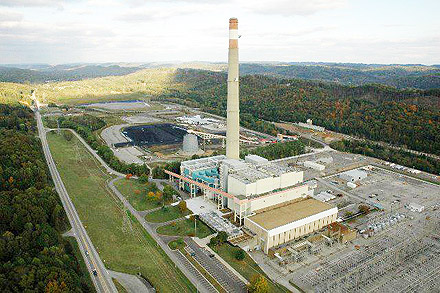Potential loss of Bull Run output will not affect power rates

Losing Bull Run Steam Plant’s output will not affect power rates.
One question not answered in the report: Could this affect the community’s power bills?
According to TVA public relations spokesperson Scott Brooks, the short answer is “no.”
“There has never been a rate increase tied to retirement of generation,” Brooks said. “We’ve retired numerous plants in the last 10 years with no increase in rates tied to those decisions.”
There was a rate increase in October of this year, however. That rate increase was part of TVA’s plan to reduce its $8 billion debt. According to Clinton Utility Board Director of Accounting and Finance Dudley Fagan, that increase cost the average residential electric customer around $2 per month.
TVA has already retired 32 of its 59 coal-fired units over the past few years and replaced the power output with natural gas and alternative energy sources.
The power that is currently generated by Bull Run goes to a power grid, as does all the other power generated by other units. One plant or unit doesn’t generate electricity for one particular community; it’s all dumped into one grid. TVA can even buy electricity from other companies, although it can be costly.
“The loss of any one generation source doesn’t impact the overall availability of electricity,” Brooks explained. “However, transmission stability is part of the review being conducted.”
Residents have sometimes been asked to raise thermostats to conserve energy. If meeting power demands is already a struggle, wouldn’t shutting down Bull Run just add to that problem?
“Requests for conservation are related to the overall grid and available assets at that time,” Brooks said. “We often have generation assets down for maintenance, and occasionally generation that ‘trips’ offline for various reasons. One of the areas of focus in our review will be any potential impacts on our generation grid.”
So, in other words, they’re looking into that. That’s the whole point; TVA is trying to determine if the pros outweigh the cons of retiring the unit. Bull Run is, according to the TVA, kind of inefficient to run.
In order to make repairs, which it needs frequently, it has to be shut down. Shutting down a coal-fired plant costs a lot of money. According to a report published by the National Renewable Energy Laboratory, “every time a power plant is turned off and on, the boiler, steam lines, turbine, and auxiliary components go through unavoidably large thermal and pressure stresses, which cause damage… While cycling-related increases in failure rates may not be noted immediately, critical components will eventually start to fail.”
Bull Run starts and stops fairly frequently. The shutdowns have placed the plant at “the bottom quartile of the U.S. fleet and the worst in the TVA coal fleet for forced outage occurrences,” according to the TVA.


